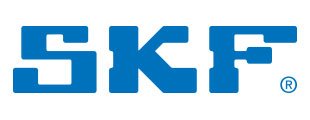A ‘plug and play’ digital pulse meter from SKF allows real-time monitoring of flow rates, helping operators to reap the benefits of enhanced lubrication control.
SKF has developed a new digital pulse meter that monitors real-time flow rates in oil circulation systems.
The ‘plug and play’ device, called IPM, helps to optimise lubrication activities. This, in turn, can reduce machine downtime, raise productivity and simplify maintenance operations.
“IPM is an ideal replacement for existing oil flow monitoring systems, such as those that rely on pulse feed or static signals,” says Falko Liebing, Product Manager for Lubrication Systems at SKF.
IPM monitors multiple lubrication points and sounds an instant alarm if conditions are out of specification. This precise control of lubrication can have many positive effects, including reduced repair costs, longer machine lifetimes and improved environmental performance.
An intuitive digital touchscreen allows parameters to be set-up quickly and easily. The display allows field configuration, and control of individual parameters for up to 45 lubrication points. Each point is monitored against nominal flow value, but this can be amended for the start-up period – in order to prevent unnecessary alarms.
Too detailed. Maybe: IPM is available in six different designs, to accommodate vertical and horizontal designs, and input sizes. It can be combined with flow meters and flow limiters. Because it was developed using standard, proven components, customers can integrate their existing process control system with almost any oil circulation lubrication system.
In addition to local alarms, the control panel has five relay outputs with 15 alarm combinations. Due to its modular design, IPM can be supplied with customised ethernet connections as an option. It also includes an API that allows higher-level process control through a fieldbus connection.
Typical application areas include pulp and paper, mining and mineral processing, cement production and the metals industry.



